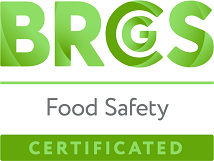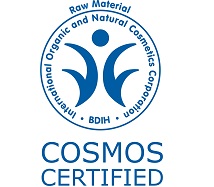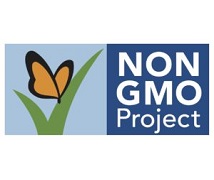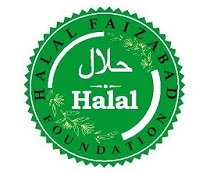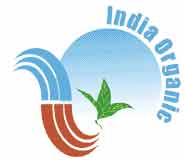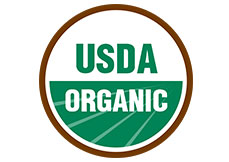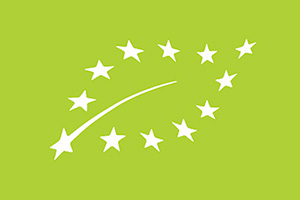
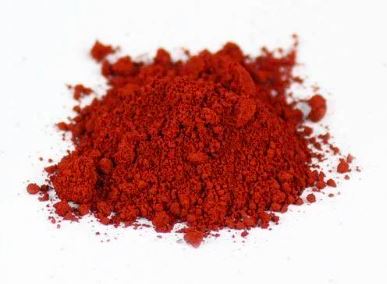
Organic Iron Powder
The indiscriminately use of fertilizers and pesticides in agriculture can have severe impact on human health ranging from toxicity and deadly diseases. We at ARYAN, are committed to address this challenge by working towards the organic food which uses herbal plants based extracts and adopts phytoremediation for removal of hazardous substances and toxic metals. For last two decades, our group has been involved in the production of Organic botanical extracts, organic essential oils, organic edible oil, organic spices, organic starch, organic flours, organic seeds. Now we are focusing on organic minerals and organic vitamins. By now ARYAN has carved a niche for itself in the field of ORGANIC FOODS and is continuously moving in leaps and bounds. Taking a leaf out of this growth, we intend to start the production of our “Organic Iron Powder”. Our vitamin is purely organic and does not use any chemical compounds. Unlike other organic Iron available in the market, ours is totally “Gluten Free”. We have already developed the organic Iron and shortly file the patent so that commercial production can star in near future.
- Iron is a mineral that is naturally present in many foods, added to some food products, and
available as a dietary supplement. Iron is an essential component of hemoglobin, an erythrocyte protein that transfers oxygen from the lungs to the tissues.
- As a component of myoglobin, a protein that provides oxygen to muscles, iron supports
metabolism.Dietary iron has two main forms: heme and nonheme. Plants and iron-fortified foods contain nonheme iron only, whereas meat, seafood, and poultry contain both heme and nonheme iron .
- Most of the 3 to 4 grams of elemental iron in adults is in hemoglobin .Much of the remaining
iron is stored in the form of ferritin or hemosiderin (a degradation product of ferritin) in the liver, spleen, and bone marrow or is located in myoglobin in muscle tissue.
- Losses are greater in menstruating women because of blood loss. Hepcidin, a circulating
peptide hormone, is the key regulator of both iron absorption and the distribution of iron throughout the body, including in plasma.
Food
The richest sources of nonheme iron include nuts, beans, vegetables, red kidney and navy beans, Lentils , Pumpkin, Sesame, hemp and flaxseeds , Almonds, Cashews, Pine nuts and Macadamia nuts, Eafy greens, Spinach, kale, beet greens ,Potatoes , Oyster mushrooms, Amaranth contain significant amounts of iron.
The FNB(Food and Nutrition Board established an RDA for vitamin D in both International Units (IUs) and micrograms (mcg).
Recommended Dietary Allowances for Vitamin D
| Age | Male | Female | Pregnancy | Lactation |
| Birth to 6 months | 0.27 mg* | 0.27 mg* | ||
| 7–12 months | 11 mg | 11 mg | ||
| 1–3 years | 7 mg | 7 mg | ||
| 4–8 years | 10 mg | 10 mg | ||
| 9–13 years | 8 mg | 8 mg | ||
| 14–18 years | 11 mg | 15 mg | 27 mg | 10 mg |
| 19–50 years | 8 mg | 18 mg | 27 mg | 9 mg |
| 51+ years | 8 mg | 8 mg |
* Adequate Intake (AI)
Health benefits of Iron
Hemoglobin formation
Iron is a primary requirement in the formation of hemoglobin, a protein in red blood cells that transport oxygen throughout the body. It also helps in increasing the oxygen carrying capacity of red blood cells. Furthermore, hemoglobin is important in making up for the loss of blood, especially in case of menstruation in women.
Muscle function
Iron is also a major component of muscular tissues, especially myoglobin, which help in providing the required amount of oxygen for contraction of muscles. It helps in maintaining the muscle tone and elasticity.
Brain function
Brain utilizes about 20% of total blood oxygen and its oxygen supply is aided by iron. Brain health and proper functioning can also be related to iron. Proper blood flow and oxygen supply in brain aids in stimulation of the cognitive activity and creates new neural pathways to prevent cognitive disorders, such as Alzheimer’s disease and dementia.
Regulation of body temperature
Iron helps in facilitating regulation of normal body temperature. It has the ability to regulate temperature depending upon the absorption capacity of the body. By maintaining a normal temperature, it also facilitates optimal environment to carryout enzymatic and metabolic functions.
<>Treats Anemia
It is found to be useful in the treatment of a severe disorder called anemia, which occurs due to loss of blood or deficiency of iron. Iron is also used to supplement women post their pregnancy to compensate for their blood loss.
Boosts Immunity
Iron plays a major role in providing strength to the human immune system, thus making it proficient enough to fight against infections and diseases. Iron helps in providing necessary oxygen to the damaged cells to aid in the process of healing.
Synthesis of neurotransmitters
Iron is one of the key factors in the synthesis of numerous essential neurotransmitters including epinephrine, serotonin, dopamine, and norepinephrine. These chemicals are important in transmitting signals for carrying out different activities involving neurons and brain.
Treatment of fatigue
In cases of unexplained or chronic fatigue, iron supplementation provides necessary cure. Fatigue might be a result of a lack of oxygen supply due to low levels of hemoglobin in the red blood cells. Insomnia Iron has shown to improve sleeping habits in people suffering from insomnia. It helps in regulating circadian rhythms. It also reduces the fluctuation of blood pressure which is said to keep people awake at night.
Iron is one of the primary components of enzymatic systems with the presence of substances, such as cytochromes and catalases. It also plays a major role in energy metabolism.
Iron Deficiency
Iron depletion and deficiency may causes functional deficits associated with anemia include gastrointestinal disturbances and impaired cognitive function, immune function, exercise or work performance, and body temperature regulation. In infants and children, cognitive abnormalities that, without treatment, can lead to learning difficulties.Some evidence indicates that the effects of deficiencies early in life persist through adulthood.Because iron deficiency is often accompanied by deficiencies of other nutrients, the signs and symptoms of iron deficiency can be difficult to isolate.
Precautions
Eating a well-balanced diet that includes iron-rich foods may help you prevent iron- deficiency anemia.Taking iron supplements also may lower your risk for the condition if you’re not able to get enough iron from food. Large amounts of iron can be harmful, so take iron supplements only as your doctor prescribes. Infants and young children and women are the two groups at highest risk for iron-deficiency anemia. Special measures can help prevent the condition in these groups.
Infants and Young Children
A baby’s diet can affect his or her risk for iron-deficiency anemia. For example, cow’s milk is low in iron. For this and other reasons, cow’s milk isn’t recommended for babies in their first year. After the first year, you may need to limit the amount of cow’s milk your baby drinks.
Search Products
- Organic Botanical Extract
- Organic Cereals
- Organic Edible Oils
- Organic Emulsifiers
- Organic Essentials Oils & Extracts
- Organic Fatty Acids
- Organic Flours
- Organic Formulations
- Organic Herbs
- Organic Minerals
- Organic Nutraceuticals
- Organic Nuts
- Organic Oil Seeds
- Organic Pulses
- Organic Special Products
- Organic Spices
- Organic Starch
- Organic Vitamins

